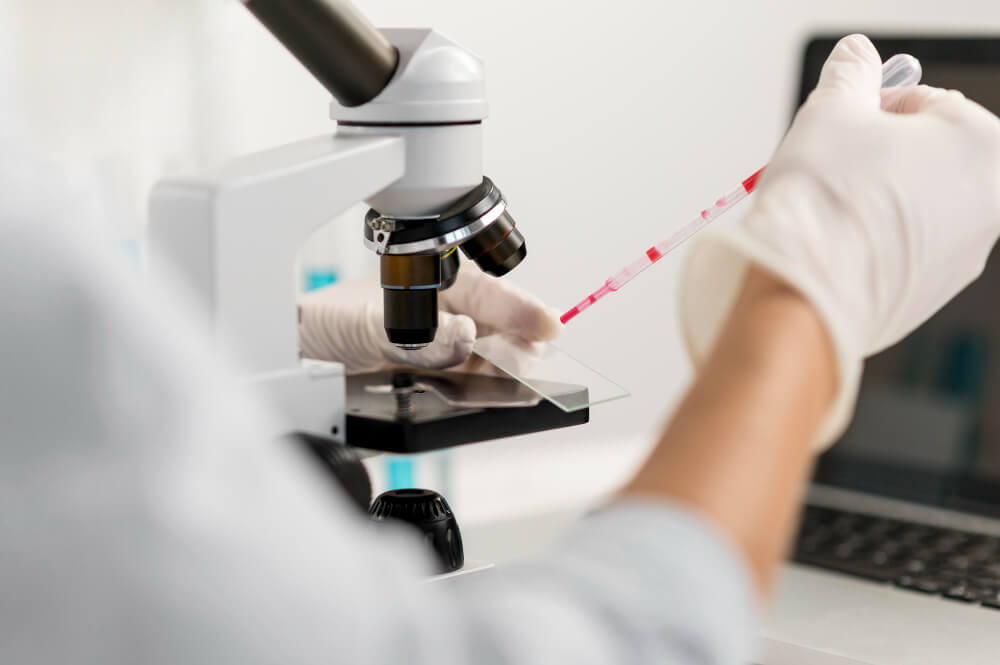Demystifying Biopsy: Understanding Your Options and Embracing the Next Steps
A biopsy might sound daunting, conjuring images of needles and uncertainty. However, it’s a crucial diagnostic tool, often the key to unlocking accurate diagnoses and paving the way for effective treatment. This comprehensive guide aims to demystify the biopsy process, exploring its various types, potential outcomes, and the treatment options that follow.
What is a Biopsy?
A biopsy is a medical procedure that involves removing a small sample of tissue for examination under a microscope. This examination helps diagnose various conditions, most notably cancer, but also infections, inflammatory diseases, and other abnormalities. By analyzing the cellular composition and structure of the tissue sample, pathologists can identify specific features and make accurate diagnoses.
Unveiling the Diverse World of Biopsies
The world of biopsies isn’t one-size-fits-all. Different types cater to specific needs and target varying tissues. Here’s a closer look at some common ones:
- Needle Biopsy:
- Fine-Needle Aspiration (FNA): A thin needle extracts cells or fluid using suction, ideal for diagnosing lumps or masses.
- Core Needle Biopsy: A thicker needle retrieves a small, cylindrical tissue sample for more detailed analysis.
- Surgical Biopsy:
- Incisional Biopsy: A surgeon removes a portion of suspicious tissue through an incision for in-depth examination.
- Excisional Biopsy: The entire abnormal area or lesion is removed, often serving as both diagnosis and treatment.
- Endoscopic Biopsy: A thin, flexible tube with a camera and light (endoscope) is inserted into a body cavity or opening to reach and collect tissue samples.
Choosing the Right Biopsy:
The type of biopsy chosen depends on several factors, including:
- Location of the suspected abnormality
- Size and characteristics of the lesion
- Underlying medical conditions
- Doctor’s recommendation and patient preferences
Navigating the Biopsy Process:
Knowing what to expect can ease anxieties. Here’s a general overview of the biopsy process:
- Pre-Biopsy Consultation: Your doctor will discuss the procedure, its risks and benefits, and answer any questions you may have.
- Preparation: Depending on the biopsy type, you might need to stop certain medications or follow specific dietary guidelines.
- The Procedure: Depending on the location and type of biopsy, it might be performed under local anesthesia, sedation, or general anesthesia.
- Recovery: Most biopsies are minimally invasive and require minimal downtime. Expect some discomfort or bruising around the biopsy site, which usually subsides within a few days.
- Results and You’ll receive your biopsy results within a few days to a week. Based on the diagnosis, your doctor will discuss further steps, which may include additional tests or treatment options.
Embracing the Journey: Treatment Options After Biopsy
A biopsy paves the way for personalized treatment plans. Depending on the diagnosis, various treatment options might be considered:
- Surgery: Removal of the cancerous tissue or affected organ.
- Radiation Therapy: Targeted high-energy beams to destroy cancer cells.
- Chemotherapy: Medications to kill cancer cells throughout the body.
- Immunotherapy: Boosting the immune system to fight cancer cells.
- Targeted Therapy: Drugs that target specific molecules or pathways involved in cancer cell growth.
Remember, treatment decisions are collaborative journeys between patients and their healthcare teams. Don’t hesitate to ask questions, express concerns, and actively participate in shaping your treatment plan.
Beyond the Biopsy: Resources and Support
A biopsy can be an emotionally charged experience. Numerous resources and support systems are available to guide you through this journey:
- Cancer Support Groups: Connecting with individuals facing similar experiences can offer invaluable emotional support and practical advice.
- Mental Health Professionals: Therapists and counselors can provide coping mechanisms and emotional support to manage anxieties and uncertainties.
- Online Resources: Patient advocacy groups and reputable websites offer informative resources, educational materials, and community forums.
Remember, You’re Not Alone:
A biopsy might mark a turning point, but it’s not the end of the story. It’s a powerful tool that empowers you to take control of your health and embark on a personalized treatment journey. With knowledge, support, and unwavering hope, you can navigate this phase with courage and resilience.


